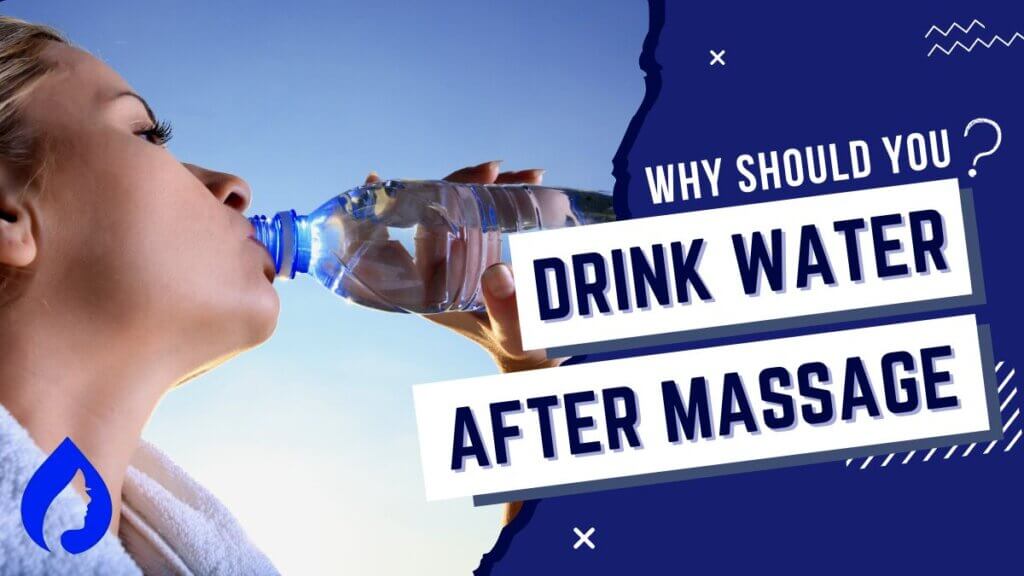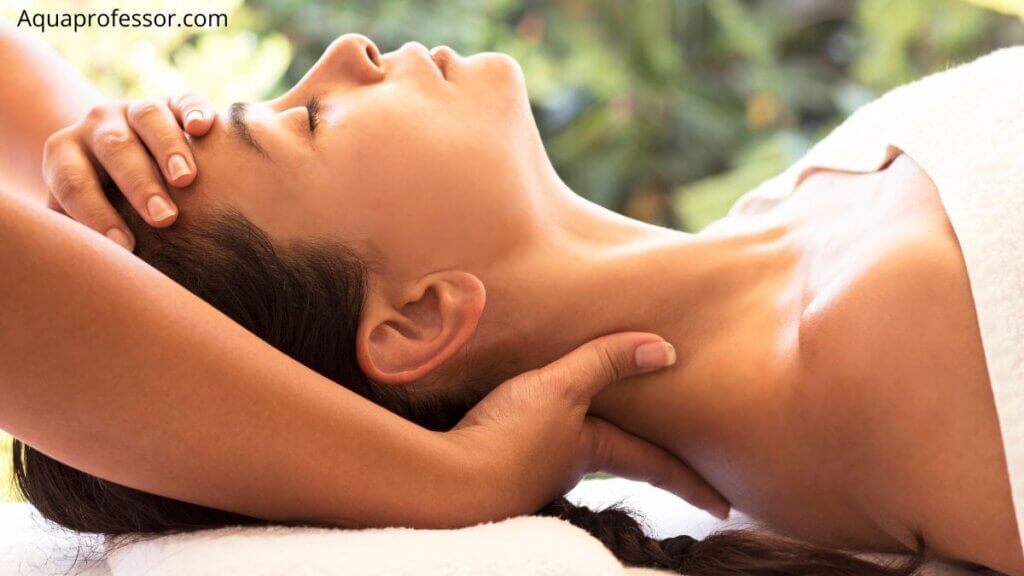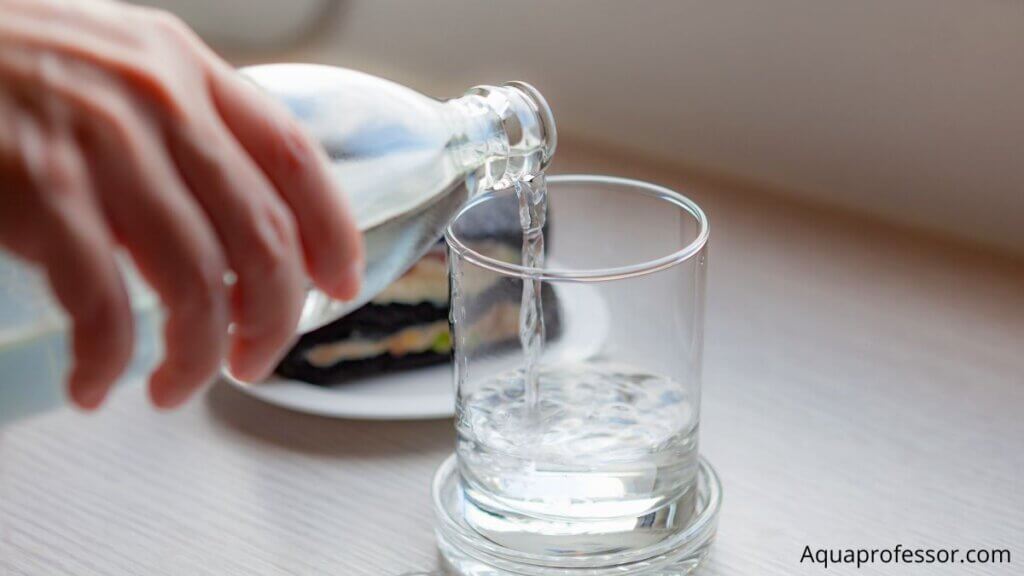
Massage is a proven stress reliever but did you ever wonder why massage therapists always tell us to drink water post-massage? Why drink water after a massage?
Here’s the truth:
During the massage, metabolic waste and other substances are released into your body’s fluid. Drinking water will help you flush out these substances.
The manipulation of muscles in massage is almost like strenuous exercise. Post-massage, your body is dehydrated and needs hydration.
But that’s not all. In this quick guide, I’ve covered the scientifically proven benefits of drinking water post-massage and how much water you should drink before a massage to reap maximum benefits. Let’s dive right in!
Why Should You Drink Water After a Massage: 3 Reasons

Drinking water isn’t mandatory post-massage, but every licensed massage therapist will always recommend you to do so.
Why? Because it has a ton of health benefits:
Also, there are side effects of not drinking enough water post an intense massage session, like headache or dizziness. But, again, it’s because metabolic wastes released during massage accumulate in the body and are not flushed out of the body with the help of water.
Also Read: How Long Does It Take To Pee After Drinking Water
Here’s what naysayers will tell you:
No scientific evidence claims that water intake post-massage makes your body’s everyday functions more efficiently than usual.
Furthermore, the claim made by numerous therapists that drinking water after massage may also help get rid of “toxins” accumulated in the body during a massage is also debatable. But such arguments hold little substance. The health benefits of hydration post-massage are too obvious to negate:
Hydration post-massage stimulates the circulatory system and kidney functioning. It also flushes waste and toxins out of the body.
Also Read: 7 Ways To Make Tap Water Tasty
How Much Water Should I Drink Before A Massage?

You should drink extra water before a massage session as hydrated muscles are easier to massage than unhydrated ones. So the question is, how much water to drink?
Here’s what you need to know:
One should drink more water than usual (eight glasses per day) before a massage session.
Other than these estimates, if your water intake is half the weight of your body (per day), it will be equally good for you.
Mind you, these are “estimates,” so although they aren’t absolute, they are useful to get maximum benefits of a massage session. Taking a massage can be costly and time-consuming, so better follow all the suggestions for a complete stress relief.
Also Read: How Do You Make Reverse Osmosis Water Hydrating?
Why Drink Water After A Massage Therapy: More Questions
What happens if I don’t drink enough water after a massage?
You may experience headaches, fatigue, and slight dizziness throughout the day if you don’t drink enough water after a massage. This is because intense massage sessions dehydrate the body, and many toxins accumulate in the bloodstream during such a session.
Why do you pee a lot after a massage?
Massage helps to improve blood flow and loosen up tight muscles. This accelerates the rate of urine production from your kidneys, causing you to urinate more frequently.
Can a full-body massage make you poop?
Yes, full body massage stimulates circulation, which further helps digestion and excretion, causing you to poop often. In addition, consistent massages can even treat constipation.
Why am I sweating after a massage?
It’s common to sweat after a massage as a part of the body’s detoxification. This is because the parasympathetic portion of the nervous system is stimulated by massage. This system stimulates your body to expel numerous waste materials from your bloodstream through sweat.
Why should you not shower before a massage?
Bathing or taking a shower before a massage may increase blood flow to the skin’s surface, which might cause skin irritation if followed by a massage.

Naina has a profound understanding of how water quality affects our overall well-being. Her expertise is a guiding light for those seeking to live a healthy life. Besides raising awareness, her write-ups provide practical advice on identifying and mitigating water-related issues.
